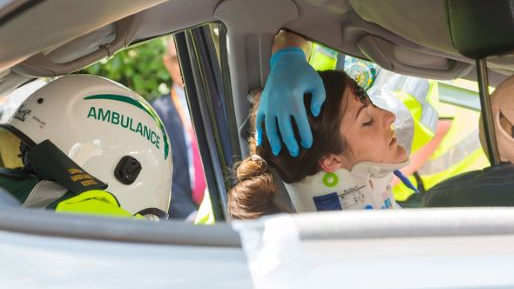Courtney - Typical day on placement

A typical day on placement: Paramedic Science
While studying Paramedic Science at UH, you will have placement blocks throughout the course, with each block around 4-5 weeks long. Many people feel anxious or nervous about starting their placements, especially their first placement, but let me reassure you that this feeling is completely natural and there is absolutely nothing to worry about. You will have an assigned mentor on each of your placements who will support you and help you progress.
My first placement in year 1 was on NETS (Non-Emergency Transport Service) with London Ambulance Service where I assisted in taking basic observations such as a heart rate and respiratory rate. NETS crews are sent out to patients who are not seriously ill or injured. I found that this was a nice way to be eased into placement as several people are worried that they will be thrown in the deep end and be immediately faced with critically ill patients.
From the second placement block onwards, you will be working on emergency ambulances where you will get sent out to patients who are ill and require medical attention. Shifts will be a mixture of days, nights, earlies, lates and weekends, and this is a good way to prepare yourself for what the shift pattern would be like once employed by the ambulance service. For these placements I was based at ambulance stations within the Edmonton Complex in North London. For me, the placements were the best part of the course, as it gave me the opportunity to have hands on experience and your mentor encourages you to get involved as much as possible. This gives you a chance to put what you have learned at university into practice and apply your knowledge to a variety of situations.
I got along very well with all the mentors I’ve worked with since year 1, and I felt comfortable asking questions about topics or situations that I wasn’t sure about or was lacking confidence in. After a job was completed, my mentor and I had a chat about the job and discussed things that went well and things that I found difficult or wanted to know more about. This was helpful as it made my mentor aware of my strengths and areas that I needed more confidence and practice in, and this helped me progress throughout the years. Being on the frontline treating patients and seeing an improvement in their condition is such a rewarding feeling, and the rewards by far outweigh the challenges of the job. There might be some jobs that you go to during your placement which are particularly upsetting or distressing but there are services available to support you, both through the university and the ambulance service.